If you are struggling with oily skin and acne breakouts, you are not alone. Oily skin occurs when your skin produces too much oil, leading to clogged pores and acne breakouts. Acne, on the other hand, is caused by hair follicles clogged with oil and dead skin cells, leading to inflammation and the formation of pimples, blackheads, and whiteheads. In this article, we will discuss the best acne treatments for oily skin, including salicylic acid, benzoyl peroxide, retinoids, clay masks, and oil-free moisturizers. We will also provide tips for choosing the right skincare products for oily skin and acne and discuss the benefits of consulting with a dermatologist.
Understanding Oily Skin and Acne
Before we dive into the best acne treatments for oily skin, it’s important to understand the causes of oily skin and acne breakouts. Oily skin occurs when the sebaceous glands in your skin produce too much oil, also known as sebum. Sebum is necessary to keep your skin hydrated and healthy, but when too much is produced, it can lead to clogged pores and acne breakouts. Hormonal imbalances, stress, and certain medications can all contribute to oily skin. For example, during puberty, the body produces more androgen hormones, which can increase sebum production and lead to acne breakouts.
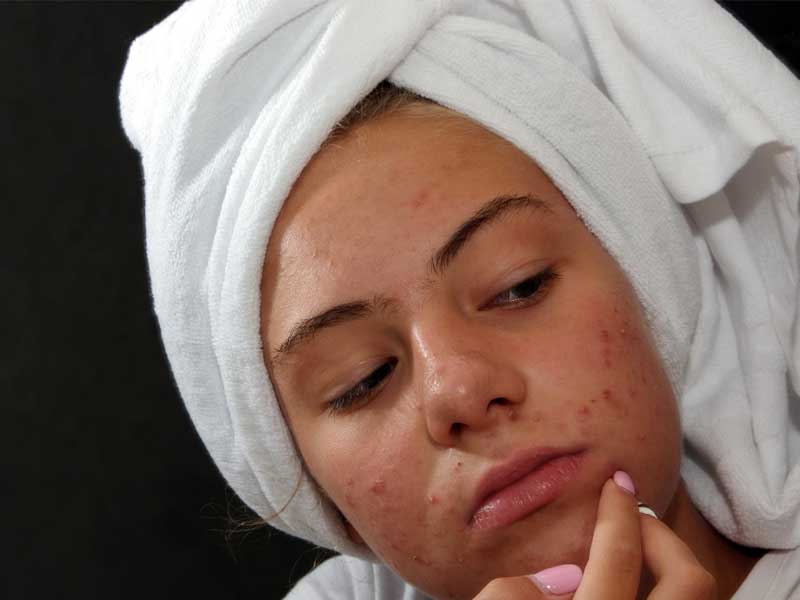
Acne, on the other hand, occurs when hair follicles become clogged with oil and dead skin cells. This can cause inflammation and the formation of pimples, blackheads, and whiteheads. Acne can be caused by a variety of factors, including genetics, diet, and hormonal imbalances. For example, studies have shown that a diet high in sugar and dairy products can contribute to acne breakouts. Hormonal imbalances, such as those experienced during puberty or pregnancy, can also lead to acne. Check out this informative article on how to prevent acne outbreaks and scarring!
The Best Acne Treatments for Oily Skin
1. Salicylic Acid
Salicylic acid is a popular acne treatment ingredient that works by exfoliating the skin and unclogging pores. It’s particularly effective for oily skin because it can penetrate deep into the pores to remove excess oil and debris. Look for products that contain 2% salicylic acid, and incorporate them into your daily skincare routine.
2. Benzoyl Peroxide
Benzoyl peroxide is another effective acne treatment ingredient that works by killing the bacteria that cause acne. It’s available in both prescription and over-the-counter formulations and can be used as a spot treatment or applied all over the face. Be sure to start with a low concentration, as benzoyl peroxide can be drying and irritating for some people.
3. Retinoids
Retinoids are vitamin A derivatives that can aid in the unclogging of pores and the reduction of inflammation. They’re also effective at reducing the appearance of fine lines and wrinkles, making them a great option for those with oily, acne-prone skin. Retinoids are available in prescription and over-the-counter formulations and can be applied once or twice a week to start.
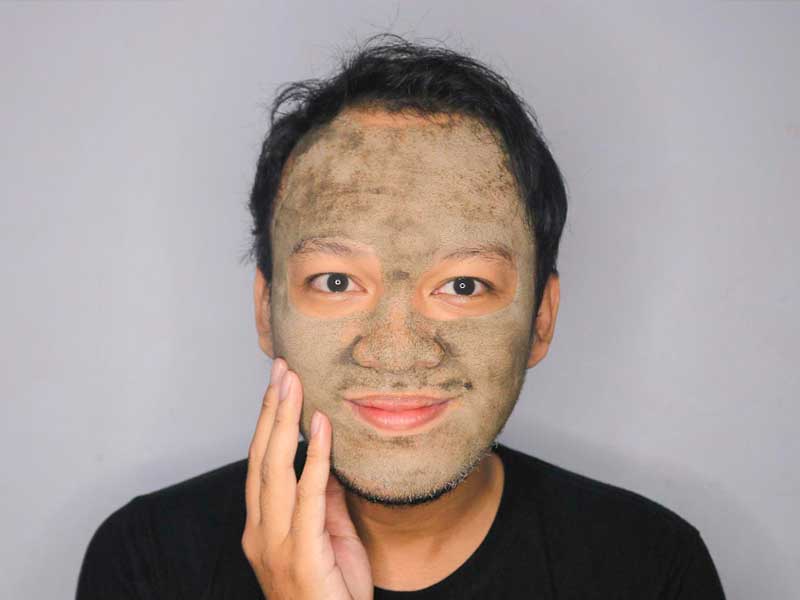
4. Clay Masks
Clay masks are a great way to absorb excess oil and unclog pores. Look for masks that contain kaolin or bentonite clay, and apply them once or twice a week for the best results. Because clay masks can be drying, use a moisturizer afterward.
5. Oil-Free Moisturizers
While it may seem counterintuitive, using a moisturizer can actually help to reduce oil production and prevent acne breakouts. Look for oil-free moisturizers that won’t clog pores, and apply them twice a day after cleansing and treating your skin.
How to Choose the Right Products for Oily Skin and Acne
Choosing the right skincare products is essential in managing oily skin and acne. In this section, we will discuss some tips for selecting the best products for your skin.
Understanding the Different Types of Acne Products (Cleansers, Toners, Serums, etc.)
There are several types of acne products available, including cleansers, toners, serums, and moisturizers. Each type of product has its specific benefits for oily skin and acne.
Checking Product Labels for Ingredients That Can Exacerbate Oily Skin and Acne
When choosing skincare products, it’s important to check the labels for ingredients that can exacerbate oily skin and acne. Here are some ingredients to avoid:
- Mineral oil: can clog pores and increase oil production
- Lanolin: can cause breakouts and irritation
- Fragrances: can irritate the skin and lead to clogged pores
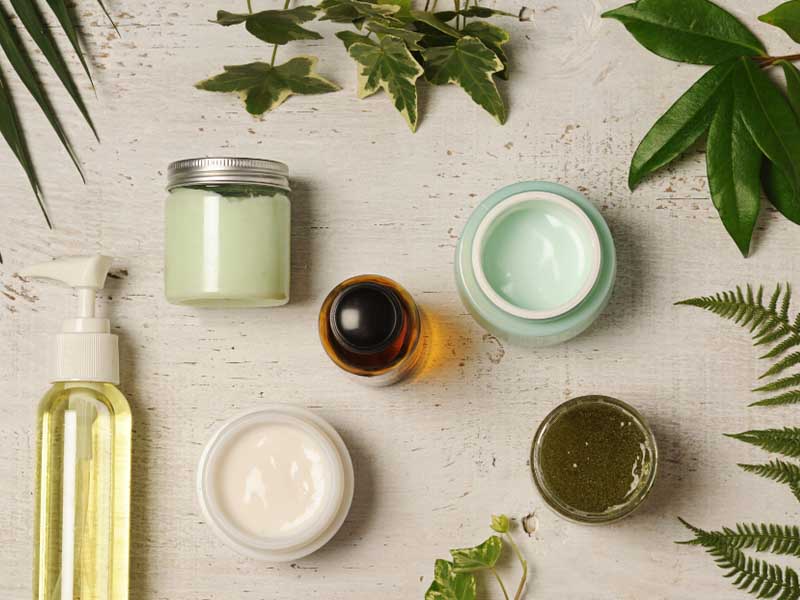
Considering the Texture and Consistency of Products to Avoid Adding Excess Oil to the Skin
When selecting skincare products for oily skin, it’s crucial to consider the texture and consistency of the products. Here are some pointers to remember:
- Look for lightweight, oil-free formulas that won’t clog your pores or add extra oil to your skin
- Avoid heavy, greasy creams and lotions, which can exacerbate oily skin and acne
- Water-based products are a great choice for oily skin, as they provide hydration without adding excess oil
- Gel-based moisturizers tend to be lightweight and absorb quickly into the skin
pH Balance
Another factor to consider is the pH level of the products you’re using. The pH level of your skin is naturally slightly acidic, with a pH range of 4.5 to 5.5. Using products that are too alkaline can disrupt the natural pH balance of your skin, leading to irritation, dryness, and increased oil production.
To avoid this, look for products with a pH level that is close to the natural pH of your skin. You can also use a pH-balancing toner after cleansing to help restore the natural pH balance of your skin.
Consulting with a Dermatologist
It’s important to note that some acne treatments can be harsh on the skin and may cause irritation or other side effects. Before applying any acne treatment medication, it’s best to consult with a dermatologist to determine the best course of action for your skin type and the severity of your acne.
Combining Acne Treatments for Better Results
When it comes to severe cases of acne, a combination of acne treatments may be necessary to achieve the best results. Here are some effective acne-fighting ingredients that can be used in combination for maximum effectiveness:
- Salicylic acid: This beta-hydroxy acid exfoliates the skin and helps to clear clogged pores.
- Benzoyl peroxide: This ingredient kills the bacteria that cause acne and also helps to reduce inflammation.
- Retinoids: These vitamin A derivatives increase cell turnover and reduce the production of sebum.
It’s important to consult with a dermatologist before applying any acne treatment medication, especially if you have sensitive skin or allergies.

When using a combination of acne treatments, follow these steps to avoid irritation and dryness:
- Start with a gentle cleanser to remove dirt and oil from the skin.
- Apply your acne treatment of choice, such as salicylic acid or benzoyl peroxide.
- To keep your skin hydrated, apply a moisturizer afterward.
- If you’re using a retinoid, apply it at night after cleansing and before moisturizing.
Remember to wear sunscreen during the day to protect your skin as retinoids can make your skin more sensitive to the sun. By layering your acne treatments in the correct order, you can maximize their effectiveness and reduce the risk of irritation and dryness.
Incorporating Acne Treatments into Your Skincare Routine
Now that you know the best acne treatments for oily skin, it’s time to incorporate them into your skincare routine. Here are some steps to follow:
- Cleanse twice a day: Start by cleansing your skin twice a day with a gentle, oil-free cleanser. This will help to remove excess oil, dirt, and impurities from your skin, which can contribute to acne breakouts.
- Apply acne treatment: Next, apply your acne treatment of choice. Whether you choose salicylic acid, benzoyl peroxide, or a retinoid, be sure to follow the instructions on the package. Apply the treatment evenly to your face, paying particular attention to any areas that are prone to acne breakouts.
- Moisturize: After applying your acne treatment, follow up with an oil-free moisturizer. This will help to keep your skin hydrated and healthy, without adding additional oil to your skin. Look for a moisturizer that is labeled as non-comedogenic, which means it won’t clog your pores.
- Use a clay mask: If you’re using a clay mask as part of your acne treatment routine, apply it once or twice a week after cleansing and before applying your acne treatment and moisturizer. Be sure to follow the instructions on the package, and avoid leaving the mask on for too long, as this can be drying.
- Don’t forget sunscreen: Sun exposure can worsen acne breakouts and lead to hyperpigmentation. Be sure to use sunscreen with at least SPF 30 every day, even on cloudy days. Look for a sunscreen that is labeled as non-comedogenic, so it won’t clog your pores.
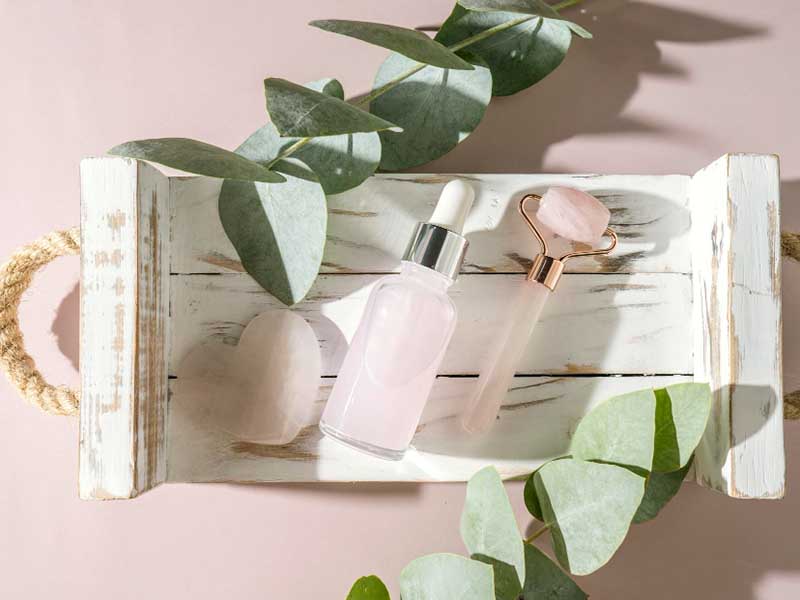
Keep in mind that it may take several weeks or even months to see results from your skincare routine. If you’re still struggling with acne after trying these treatments, consider consulting with a dermatologist for additional guidance. With the right approach and treatment, you can achieve clear, glowing skin and say goodbye to oily skin and acne breakouts.
Considering the complexities of managing oily skin and persistent acne breakouts, seeking professional guidance is paramount. If you’re seeking specialized solutions for your skin concerns, consulting a dermatologist can provide a personalized approach tailored to your unique needs. By collaborating with a dermatologist, you can navigate the intricate landscape of acne dermatology and embark on a journey to achieve lasting clarity and confidence in your skin.
Natural Remedies for Oily Skin and Acne
If you’re looking for a more natural approach to treating oily skin and acne, there are several remedies you can try. These remedies can help reduce oil production, unclog pores, and soothe inflammation.
1. Tea Tree Oil
Tea tree oil is a powerful natural antiseptic that can help kill acne-causing bacteria and reduce inflammation. It also has astringent properties that can help regulate oil production and reduce the appearance of pores.
To use tea tree oil for oily skin and acne, mix a few drops of the oil with a carrier oil like jojoba or coconut oil and apply it to the affected areas with a cotton swab. You can also find skincare products like cleansers and toners that contain tea tree oil as an ingredient.
2. Aloe Vera
Aloe vera is a soothing and hydrating ingredient that can help reduce inflammation and redness associated with acne. It also has antibacterial properties, which can aid in the killing of acne-causing bacteria.
To use aloe vera for oily skin and acne, you can apply the gel from a fresh aloe vera plant directly to your skin or look for skincare products that contain aloe vera as an ingredient.
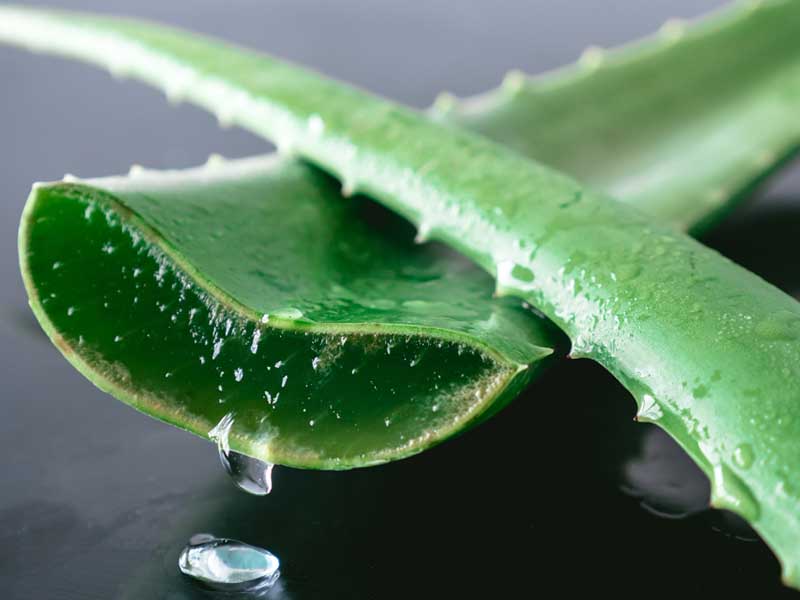
3. Green Tea
Green tea is a natural anti-inflammatory that can help reduce redness and irritation associated with acne. It also contains antioxidants, which can help protect the skin from free radical damage.
To use green tea for oily skin and acne, steep a green tea bag in hot water for a few minutes, then let it cool. Use a cotton ball to apply the tea to your skin or look for skincare products that contain green tea as an ingredient.
Avoid Overuse of Acne Treatments
While acne treatments can be highly effective, it’s important to avoid overuse, which can lead to irritation and dryness. Start by using acne treatments once a day, and gradually increase to twice a day if needed. If you experience irritation or dryness, cut back on the frequency of use or switch to a milder formula.
Furthermore, when using acne treatments, patience is key. It can take several weeks to see significant improvement in your skin, so don’t give up if you don’t see results right away. Stick with your skincare routine and be consistent with your use of acne treatments for the best results.
Oily Skin Acne Prevention
There are steps you can take to prevent oily skin acne and achieve clear, healthy skin. Here are some tips to help you prevent oily skin acne:
- Cleanse your skin: Cleansing your skin with a gentle, oil-free cleanser can help to remove excess oil, dirt, and impurities from your skin. This can prevent clogged pores and acne breakouts.
- Use products labeled as non-comedogenic: Non-comedogenic products are formulated not to clog pores, making them ideal for preventing acne breakouts. Look for products labeled as non-comedogenic, such as moisturizers, sunscreen, and makeup.
- Exfoliate once or twice a week: Exfoliating your skin once or twice a week can help to remove dead skin cells that can clog pores and contribute to acne breakouts. Find a gentle exfoliator that will not irritate your skin.
- Avoid touching your face: Touching your face can transfer oil, dirt, and bacteria from your hands to your skin, which can contribute to acne breakouts. Try to avoid touching your face as much as possible, and wash your hands before applying skincare products.
- Eat a healthy diet: Your diet can affect your skin, so try to eat a healthy, balanced diet with plenty of fruits, vegetables, and whole grains. Avoid foods that are high in sugar and refined carbohydrates, as these can contribute to acne breakouts.
- Manage stress: Stress can trigger hormonal changes that can lead to acne breakouts. Try to manage stress through activities such as yoga, meditation, or exercise.
- Get enough sleep: Lack of sleep can also contribute to acne breakouts. Aim to get 7-8 hours of sleep per night to help your skin stay healthy and clear.
- Avoiding Smoking and Excessive Alcohol Consumption: Smoking can lead to clogged pores and reduced blood flow to the skin, while alcohol can dehydrate the skin and increase oil production.

Final Thoughts
In conclusion, managing oily skin and acne breakouts can be challenging, but with the right skincare routine and products, you can achieve clear, glowing skin. Salicylic acid, benzoyl peroxide, retinoids, clay masks, and oil-free moisturizers are some of the best acne treatments for oily skin. When selecting skincare products, it’s crucial to consider the ingredients, texture, consistency, and pH balance to avoid exacerbating oily skin and acne.

Consulting with a dermatologist can also be beneficial, and with Remotederm’s online dermatology consultation services, you can access expert advice from anywhere, eliminating the need for long waits to visit dermatologists in person. Remember, consistent skincare habits and a healthy lifestyle are key to achieving and maintaining healthy, radiant skin.
FAQs
1. What causes oily skin and acne breakouts?
Oily skin occurs when the skin produces too much oil or sebum, which can lead to clogged pores and acne breakouts.
2. What ingredients should be avoided in skincare products for oily skin and acne?
Mineral oil, lanolin, and fragrances are ingredients that should be avoided in skincare products for oily skin and acne.
3. How does salicylic acid work to treat acne?
Salicylic acid works by exfoliating the skin and unclogging pores, making it particularly effective for oily skin.
4. Are retinoids effective at reducing acne and fine lines?
Yes, retinoids are effective at reducing the appearance of fine lines and wrinkles, as well as unclogging pores and reducing inflammation.
5. What is the pH level of healthy skin?
The pH level of healthy skin is slightly acidic, with a range of 4.5 to 5.5. Using products that are too alkaline can disrupt the natural pH balance of your skin, leading to irritation, dryness, and increased oil production.

6 comments
I’ve always wondered about the difference between blackheads and whiteheads. Can someone explain it in simple terms?”
Blackheads and whiteheads are both types of comedones, which are clogged hair follicles. The main difference lies in their exposure to air. Blackheads have open pores, allowing the clogged material to oxidize and turn dark, giving them their characteristic black appearance. Whiteheads, on the other hand, have closed pores, and the clogged material remains trapped under the skin, appearing as small, flesh-colored bumps. You can read more about types of acne here
I have oily skin, and I’m concerned about developing wrinkles. Can oily skin actually cause wrinkles?
Oily skin is associated with producing more sebum, which can actually help keep the skin hydrated and less prone to fine lines. However, excessive oil production can contribute to clogged pores and acne. Wrinkles are more influenced by factors like sun exposure, genetics, and age.
I’ve been struggling with oily skin, and I’m not sure how often I should exfoliate. Any suggestions?
If you have oily skin, it’s generally recommended to exfoliate 2-3 times a week. However, be cautious not to over-exfoliate, as it can lead to irritation and more oil production. Opt for gentle exfoliants suitable for your skin type. Our recommendation is to consult a dermatologist for better guidance.